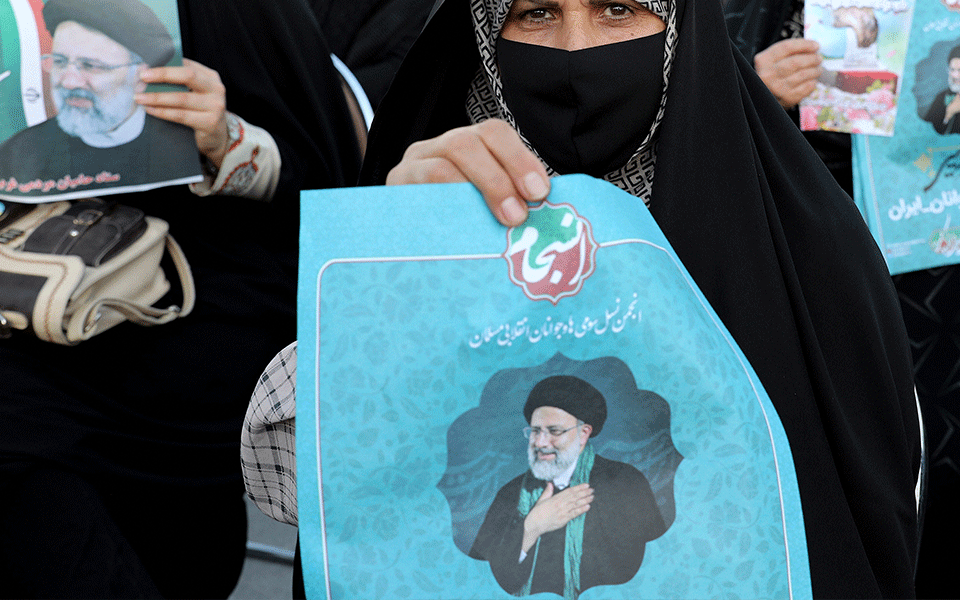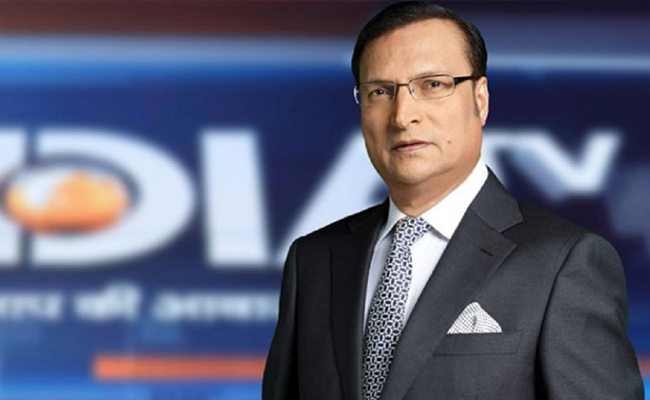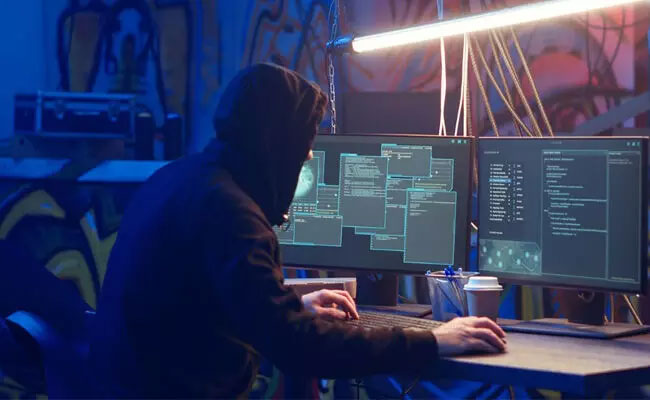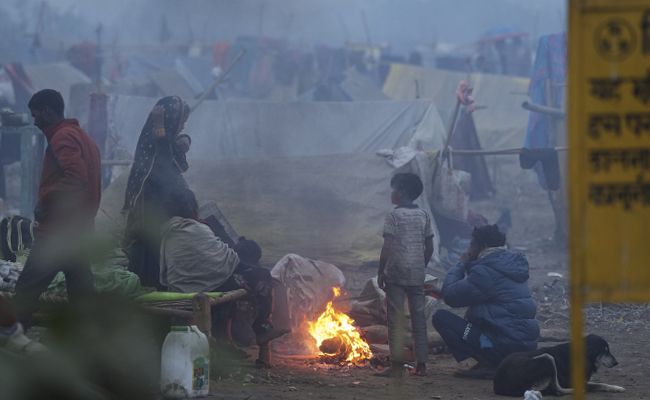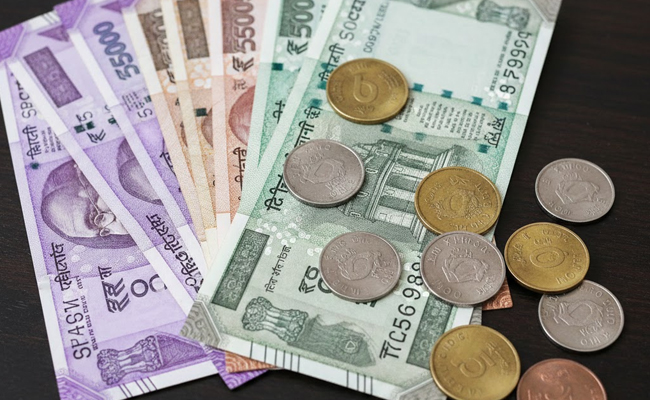Dubai: Iran's judiciary chief won the country's presidential election in a landslide victory Saturday, propelling the supreme leader's protege into Tehran's highest civilian position in a vote that appeared to see the lowest turnout in the Islamic Republic's history.
Initial results showed Ebrahim Raisi won 17.8 million votes in the contest, dwarfing those of the race's sole moderate candidate. However, Raisi dominated the election only after a panel under the watch of Supreme Leader Ayatollah Ali Khamenei disqualified his strongest competition.
His candidacy, and the sense the election served more as a coronation for him, sparked widespread apathy among eligible voters in the Islamic Republic, which has held up turnout as a sign of support for the theocracy since its 1979 Islamic Revolution. Some, including former President Mahmoud Ahmadinejad, called for a boycott.
In initial results, former Revolutionary Guard commander Mohsen Rezaei won 3.3 million votes and moderate Abdolnasser Hemmati got 2.4 million, said Jamal Orf, the head of Iran's Interior Ministry election headquarters. The race's fourth candidate, Amirhossein Ghazizadeh Hashemi, had around 1 million votes, Orf said.
Hemmati offered his congratulations on Instagram to Raisi early Saturday.
I hope your administration provides causes for pride for the Islamic Republic of Iran, improves the economy and life with comfort and welfare for the great nation of Iran, he wrote.
On Twitter, Rezaei praised Khamenei and the Iranian people for taking part in the vote.
God willing, the decisive election of my esteemed brother, Ayatollah Dr. Seyyed Ebrahim Raisi, promises the establishment of a strong and popular government to solve the country's problems, Rezaei wrote.
The quick concessions, while not unusual in Iran's previous elections, signaled what semiofficial news agencies inside Iran had been hinting at for hours: That the carefully controlled vote had been a blowout win for Raisi amid the boycott calls.
As night fell Friday, turnout appeared far lower than in Iran's last presidential election in 2017.
Balloting came to a close at 2.a.m. Saturday, after the government extended voting to accommodate what it called crowding at several polling places nationwide. Paper ballots, stuffed into large plastic boxes, were to be counted by hand through the night, and authorities said they expected to have initial results and turnout figures Saturday morning at the earliest.
My vote will not change anything in this election, the number of people who are voting for Raisi is huge and Hemmati does not have the necessary skills for this, said Hediyeh, a 25-year-old woman who gave only her first name while hurrying to a taxi in Haft-e Tir Square after avoiding the polls. I have no candidate here.
Iranian state television sought to downplay the turnout, pointing to the Gulf Arab sheikhdoms surrounding it ruled by hereditary leaders, and the lower participation in Western democracies. After a day of amplifying officials' attempts to get out the vote, state TV broadcast scenes of jam-packed voting booths in several provinces overnight, seeking to portray a last-minute rush to the polls.
Let the Truth be known. If you read VB and like VB, please be a VB Supporter and Help us deliver the Truth to one and all.
Noida: India TV editor-in-chief Rajat Sharma has drawn sharp criticism on social media following remarks he made on air attributing Delhi’s air pollution partly to its geographical location and the Aravalli hill range.
Speaking during a recent episode of his prime-time show Aaj Ki Baat, Sharma said Delhi’s geography plays a major role in trapping polluted air.
“Geographical location is the main reason. Delhi is a big city and its shape is like a bowl, surrounded by the Aravalli hills on three sides. As a result, polluted air gets trapped and cannot disperse easily. Therefore, the problem of pollution in Delhi cannot be solved in one year or in any particular season,” he said.
His comments came amid a severe deterioration in air quality in the national capital. On Sunday morning, December 21, Delhi woke up to a thick blanket of toxic smog, sharply reducing visibility and causing widespread discomfort. The overall Air Quality Index (AQI) stood at 390 around 7 a.m., placing it in the ‘very poor’ category, according to data from the Central Pollution Control Board (CPCB).
Dense fog and smog also disrupted flight operations at Delhi’s Indira Gandhi International Airport (IGIA). As many as 110 flights were cancelled, while over 370 flights were delayed due to poor visibility. Of the cancelled services, 59 were arriving flights and 51 were departures. Flight-tracking website Flightradar24 showed that departing flights faced an average delay of around 26 minutes.
Netizens troll Sharma
One user wrote on X, “Rajat Sharma is saying due to the Aravalli hills, there is air pollution in Delhi. He is defending mining and destroying the Aravalli hills like this. How can these people call themselves journalists?”
Another user accused him of political hypocrisy, comparing his earlier criticism of the Delhi government with his current remarks, and wrote, “In 2023 he blamed Arvind Kejriwal for Delhi air pollution. In 2025, he is blaming the Aravalli hills because BJP is in power. Hypocrisy = 100%, Journalism = 00%.”
Others termed the comments an example of the “godi media” narrative, alleging that geography was being blamed instead of governance, industrial emissions, vehicular pollution, construction dust, and stubble burning. “When they fail to question power or policy, they conveniently shift the blame to nature,” another post read.
“Friends, what can one even say about today’s godi media? According to them, the reason for Delhi’s pollution is that the Aravalli hills surround the city from three sides, trapping polluted air inside. Seriously? So now Sudhir Chaudhary and Rajat Sharma want us to believe that nature itself is to blame? When they fail to question power or policy, they conveniently shift the blame to geography. Apparently, it’s not years of environmental destruction or administrative failure—it’s the Aravalli hills! Does this explanation make any sense at all?,” wrote another.
What is the Aravali issue?
The controversy arises over the Union government’s revised definition of what constitutes the Aravalli hills.
The decision has drawn protests involving environmental activists across Haryana, Rajasthan, and parts of the Delhi-NCR region, who have raised concerns that the new definition could weaken protection for one of the world’s oldest mountain ranges.
Under the revised definition, an “Aravalli hill” is described as any landform in designated Aravalli districts with an elevation of 100 metres or more above local relief, while an “Aravalli range” is defined as a cluster of two or more such hills within 500 metres of each other. Activists fear this could open the door for mining, construction, and commercial activities in previously protected areas.
Environmentalists argue that the Aravalli range serves as a natural barrier against desertification, dust storms, and pollution, and plays a vital role in maintaining ecological balance in the Delhi-NCR region.
They have demanded that the entire Aravalli range be declared a fully protected area with strict conservation measures.
Meanwhile, Union Environment Minister Bhupender Yadav has stated that the new definition, accepted by the Supreme Court based on a Centre-led panel’s recommendations, would not result in any relaxation of mining norms in the Aravalli region.
Rajat Sharma is saying due to Aravalli hills there is Air pollution in Delhi. He is defending mining & destroying Aravalli hills like this
— Veena Jain (@Vtxt21) December 21, 2025
How can these people call themselves Journalists even after doing such things 🤮
pic.twitter.com/osgDAYl6Nb
🚨 2023 : Rajat Sharma was blaming Arvind Kejriwal for delhi air pollution
— Amock_ (@Amockx2022) December 21, 2025
🚨 2025 : He is blaming Aravalli Hills for delhi air pollution because BJP is in govt
Hypocrisy = 100%, Journalism = 00% 🤣 pic.twitter.com/EHCrAmAfGY
Friends, what can one even say about today’s godi media? According to them, the reason for Delhi’s pollution is that the Aravalli hills surround the city from three sides, trapping polluted air inside. Seriously? So now Sudhir Chaudhary and Rajat Sharma want us to believe that…
— The indian guy (@Ab60307) December 20, 2025

